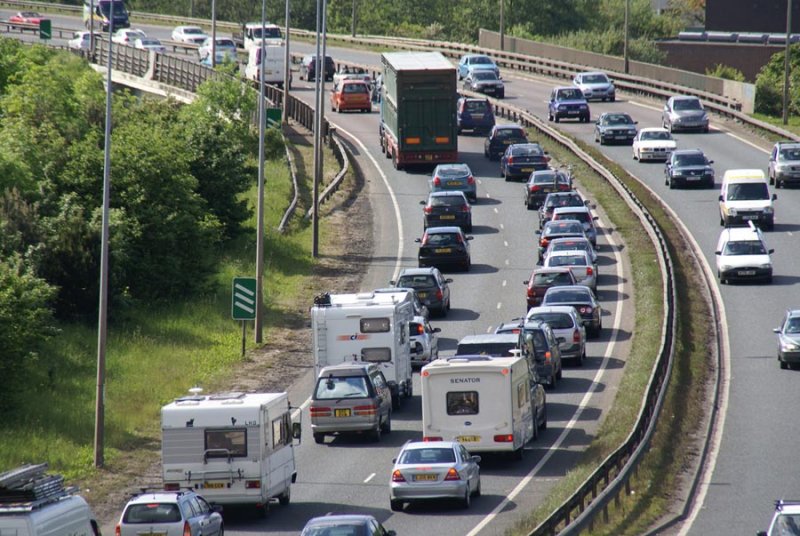Voice reader Frank Paterson has been moved sufficiently by Fin Hall’s recent article on traffic management, Bipeds, by-passes and bye-bye responsibility, to add his own views. ‘It’s good for Aberdeen Voice to publish an article on such an important and contentious issue’, he says. Thank you, Frank.
 With the greatest of respect to the writer, the article is a good reflection of mainstream NE thinking on transport, in grousing about congestion but failing to suggest ways of dealing with it, apart from demanding more road building.
With the greatest of respect to the writer, the article is a good reflection of mainstream NE thinking on transport, in grousing about congestion but failing to suggest ways of dealing with it, apart from demanding more road building.
This, as previous Voice articles have explained, will only exacerbate the problem.
This really is vital issue as the growth in road traffic is presenting an enormous threat to the environment and economy of Aberdeen.
Far more importantly however, it is disastrous to people’s health. The World Health Organisation (WHO) has announced that air pollution is officially a cause of lung and bowel cancer.
The writer urges Aberdeen drivers to be more considerate without taking into account Aberdeen’s transport system’s role in causing poor behaviour. The system is not only a complete embarrassment, but is also completely dysfunctional.
It appears to me that the article was unkind to George Kilbride, who was only attempting to action what transport managers throughout the world know to be the only viable solution to congestion and pollution, that is, modal shift in transport use. With sufficient political will this is achievable, as can be demonstrated by examples from many world cities.
unwillingness to change lifestyles is the root cause of the discontent expressed
However, experience shows that attempting to accommodate the current problems of motor transport by demand management, which has been the case up till now, results merely in the relocation of congestion.
This continues to be the case with the proposed AWPR and Third Don Crossing.
The footprint of cars and goods vehicles is too large, and fuel combustion too great, for individualised motorised travel. An aspiration of many is to drive the largest of vehicles but fundamentally there is not enough room within Aberdeen, and air quality is too poor, to accommodate current traffic comfortably, let alone more and larger vehicles.
Aberdeenshire Council’s Local Transport Strategy 2012 states (Para 8/28):
“The guiding principle of the LTS aims to encourage individuals to change their travel behaviour. If we are to succeed in achieving this, our citizens must feel comfortable and safe whether walking, cycling or using public transport or when choosing to drive”
Transport professionals are clear on what must be done, but politicians are afraid to act, so an unwillingness to change lifestyles is the root cause of the discontent expressed in the previous article. Anger and bewilderment will increase along with congestion until the inevitable restrictions on car use are enforced by necessity of space and clean air.
However, the perennial congestion at Aberdeen’s traffic pinch points demonstrates how much inconvenience car users are willing to endure before shifting to more sensible modes of travel.
Like the public smoking ban, the occupation of public highways by tons of steel and the discharge of combustion waste into the air people breathe, will need to be curtailed eventually. This will be necessary for everyone’s benefit, despite the inevitable outcry.
- WHO report: http://www.iarc.fr/en/media-centre/iarcnews/pdf/pr221_E.pdf
- Aberdeenshire Council Local Transport Strategy 2012: http://www.aberdeenshire.gov.uk/transportation/lts/index.asp
Comments enabled – see comments box below. Note, all comments will be moderated.